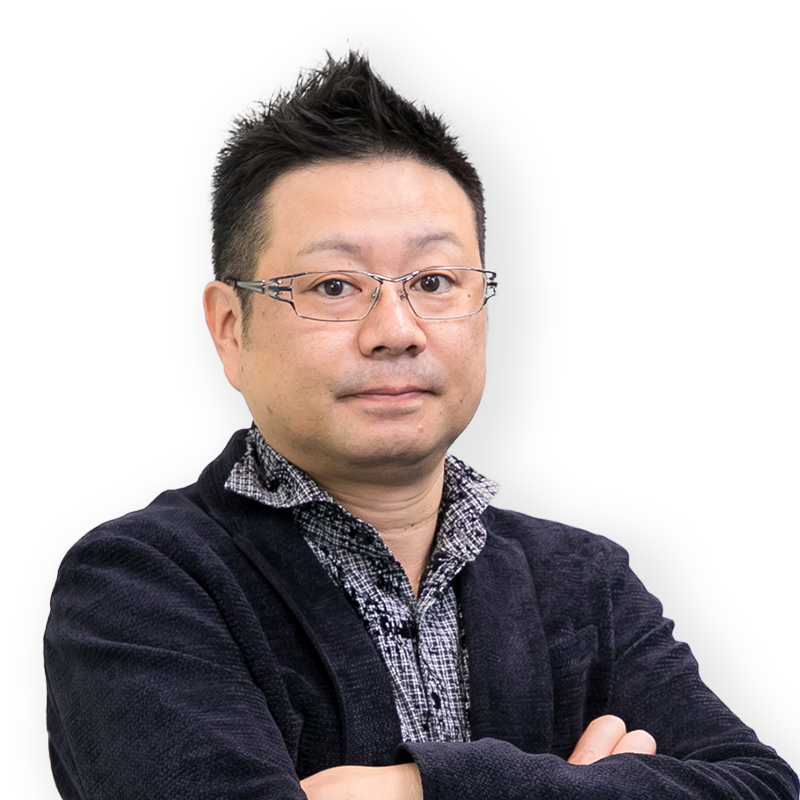Transcending cultural differences and bringing the wonder of games to a worldwide audience
As a game designer, I've worked on "Hatsune Miku: Project DIVA", "Sakura Wars", and "Sonic Frontiers". When I worked on Sonic Superstars, which launched in October 2023, my duties included managing the development team's schedules and tasks and performing quality checks. I also supervised the game's localization in coordination with SEGA of America (SOA); we'd check the quality of the translations and ensure that there was no potentially offensive content.
Since joining the company, I've had the privilege of working on projects of all magnitudes. I always enjoy tackling new challenges head-on. There have been many challenging parts of the job for sure. However, at SEGA, the support I've received from my senior colleagues has led to tremendous personal growth, and allowed me to keep at it without getting burnt out. In addition, I find solace in knowing that my experiences overseas have been instrumental in propelling our projects forward.
As a child, I lived in Luxembourg until elementary school. Back then, I loved games and knew I wanted to be involved with making them one day. When "Pokémon" became a cultural sensation, it radically changed how people overseas viewed Japanese people and showed the impact that a game can have. At the time, SEGA's arcade cabinets were making a big splash all over Europe. I made the decision to join SEGA because I knew that no matter where I was placed, I'd be able to forge new friendships through our shared love of gaming. However, what surprised me was how different the atmosphere felt from a normal workplace. Everyone here was having so much fun in their work!
The joy of developing games and sharing fun experiences with the world
I was born and raised abroad. After returning to Japan, I attended a school that had very liberal values. What I struggled with the most was understanding the culture here, especially the work culture. For a company like SEGA, which markets its games globally, having an international perspective and experience abroad is a huge plus. Norms and customs that are commonplace in Japan may not be as common in other places due to cultural and religious differences.

Take prayer for an example. The way you pray, the things you pray for, and what you worship will vary depending on your religion; some religions may not have any form of prayer at all. It's imperative that we conduct research on different cultures and regions, as games released globally might be met with restrictions or backlash in some countries because of the way religious content is portrayed. However, at the same time, if we're overly nitpicky, we'll end up stripping the game of its charm. Finding where to draw that line is what makes localization and culturalization so difficult.
I'm happy where I am because there aren't many jobs out there where you can make people around the world laugh and cry through something you've created. I'll never forget how excited I felt seeing people line up at the Tokyo Game Show to play the first game I'd ever worked on, or how touched I was when a gaming YouTuber I'd followed for years released a video on "Sonic Frontiers"!
Discussions between creators spark SEGA's best ideas
At SEGA, avid gamers from all walks of life share their interests and that gives rise to new ideas. SEGA's greatest strength is its ability to rally together experts of different skill sets and have them develop global titles together. I believe that our company's culture promotes a high level of freedom and respects each person's unique work approach. If you're interested in exchanging opinions with lots of people and working on games that'll capture the world's attention, then you're a perfect fit for our team. Going forward, I'd like to gain further experience by working with SEGA's group companies overseas and assisting them with game development. I hope to learn how to apply their thought processes to new games that we develop.

10:00 AM Work day begins with a meeting with the American team where we go over the progress of our projects.
11:00 AM Regular meeting with an external development company where we finalize project details. We also discuss progress and may consult matters with them.
12:30 PM Break for lunch. I look forward to hitting up the food trucks; there's an amazing paella on Tuesdays and karaage on Thursdays.
1:30 PM Create documents or reply to any messages and emails.
3:00 PM Regular meeting with the Corporate Communications and Marketing Departments.
4:30 PM Resume working on my tasks after a short coffee and snack break.
7:00 PM Work ends. After I get home, I make dinner and eat it while playing games with my friends.

STAFF INTERVIEWS



























